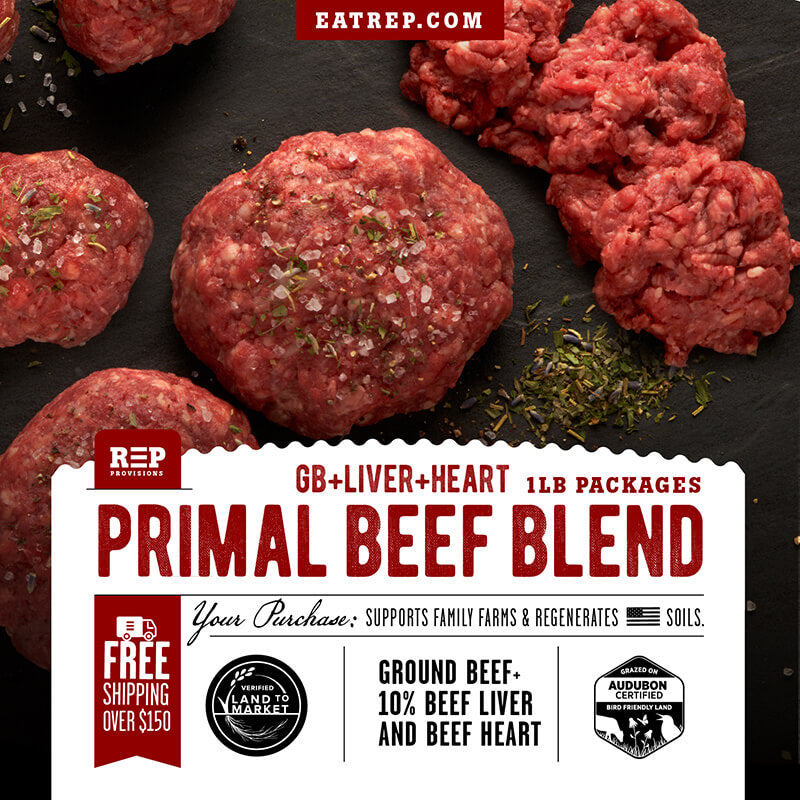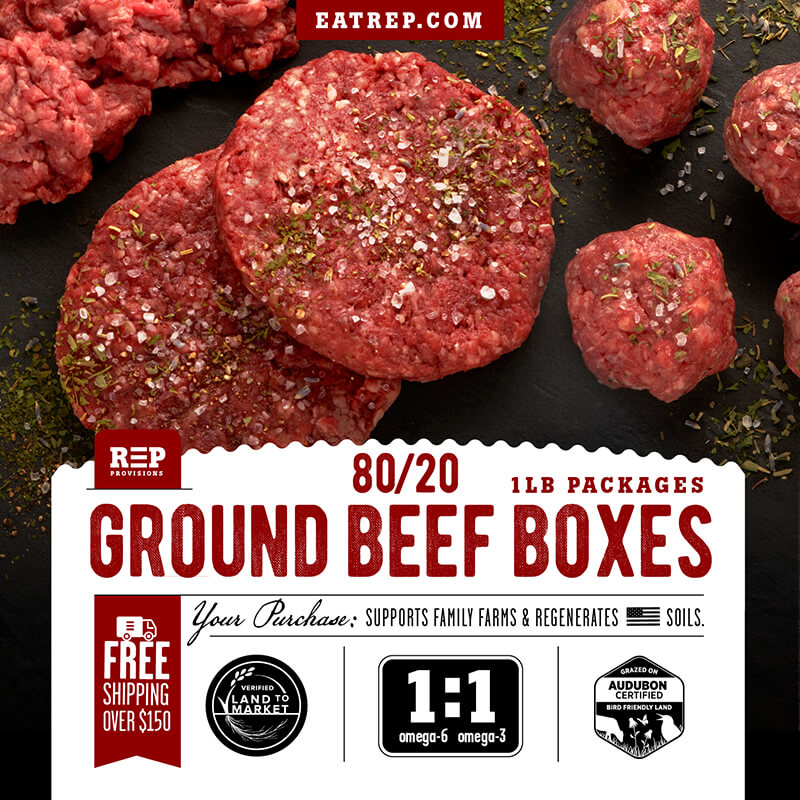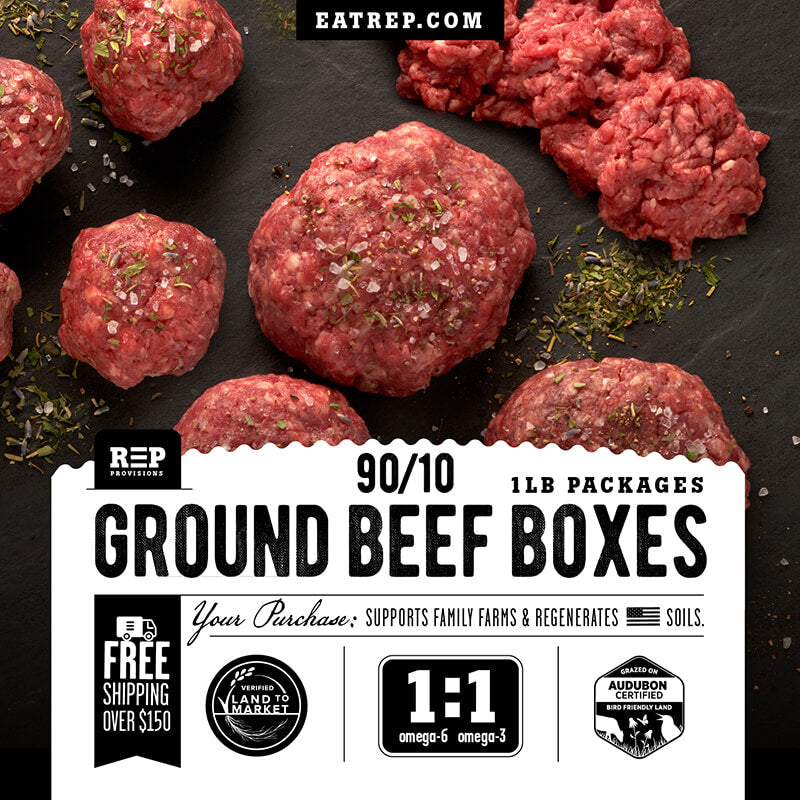
To eat meat, or not to eat meat, that is not the question.
Regeneration and the language of reciprocity.
Food is extremely personal. Our choices around what to eat are influenced by biological, economic, physical, and social determinants.
Today, in an age where climate anxiety and doomsday scrolling reign supreme, many people are trying to reduce their negative environmental impact. Three-quarters of Americans believe human activity contributes to climate change, and of those people 70% say it’s necessary to make lifestyle changes to address this.
In response to the destructive and inhumane practices of industrial agriculture, many Americans are choosing to forgo meat altogether. Marketers are taking advantage of people’s desire to help, or at least not harm the planet; just look around and you’ll see celebrities like the Kardashians touting Beyond Meat.
As a society separate from nature, we regularly fall prey to quick fixes, trends, and marketing scams in our shift towards more eco and health-conscious consumption. The binary idea equating meat as bad and plant-based as good is a great example of this.
The truth? It’s not that simple.
Can Meat Eaters and Non-Meat Eaters Find Common Ground?
Most commonly on social media vegans, vegetarians, and meat lovers alike hurl insults back and forth. Meat eaters are murderers and vegans, self righteous instagram influencers, or so the cliché conversation goes.
Rather than calling out, blaming, and shaming each other, activist and scholar Loretta J. Ross provides a toolkit for starting productive conversations in her TED Talk. Adopting a “call-in culture” in hot button conversations is paramount, especially when we have so much at stake.
Generally speaking things are not black and white. Thinking critically, being open to new information, firm yet flexible in your beliefs, and able to hear people outside of your bubble is an important and necessary skill.
No matter our differences we all need healthy air, water, and soil. We all need resilient food systems and nutrient-dense foods to feed our communities.
There is no one-size-fits-all-solution.
When it Comes to Eating Meat Think Relationships, Complexity & Source.
In Braiding Sweetgrass Indigenous scientist, professor, and writer, Robin Wall Kimmerer describes her relationship with the Earth as one guided by reciprocity and ecological consciousness.
Reciprocity means energy borrowed is energy you have to give back. It’s a relationship between you and the land, your food, and all living creatures. It’s essentially the circle of life and a relationship-based approach to existing within our world.
So rather than meat bad, plants good, let’s compare and contrast. While an industrial farm producing plant-based products isn’t slaughtering cattle, pork, or chickens, does that mean there’s no loss of life? Is there ecological balance?
Monocultures, or, “the cultivation of a single crop or a species of animal in a given area” destroys biodiversity. Soil microbes, native plant species, beneficial insects, small and mid-sized mammals, wild birds, and predator species all suffer within this framework.
The ecosystem collapses. Farmers land value depletes overtime. More fertilizers and chemicals are used as a band-aid which poisons our waterways and our bodies.
Plant-based products like Beyond Meat are heavily processed, resulting in major losses in nutritional value. Even unprocessed vegetables and meat raised within a monoculture system are significantly less nutritious than regenerative.
You see, it’s more complicated than what we eat, or what the final product looks like. Instead we may begin to ask, is this product generating more life?
Nature’s Solution? Regenerative Meats.
Whether you choose to eat meat is personal. For many it’s a way of life and a deeply sacred act.
For others it’s a no, and that’s okay. In writing this my intention is to broaden and deepen the scope of the conversation around our relationship with food and where it comes from.
Regenerative agriculture is farming and ranching in harmony with nature, blending Indigenous knowledge, conservation approaches, and scientific inquiry to not only restore ecosystems, but measurably improve the health of the land.
Holistic and guided by principles instead of top-down prescriptions, regenerative agriculture can be applied to any context in order to increase biodiversity, restore soil health and water cycles, sequester carbon, enhance overall health and resilience of a farm, and build stronger food systems.
If you do choose to eat meat, REP Provisions Verified regenerative ranches actively restore and improve the health of America’s grasslands and all the living creatures, big and small, who inhabit it.
Reciprocity to us means that on our ranches, there’s no such thing as waste. We honor each life by using the whole animal for top quality dog treats, organ meats, and sumptuous sear-ready prime steak cuts.
We never use synthetic fertilizers, antibiotics, chemicals, or additives, because we don’t have to. A healthy ecological system supports healthy animals, land, and people. Our beef tests nutritionally superior to non-regenerative grass-fed and industrial meats.
Better for you, better for the planet. Shop REP Provisions today with reciprocity in mind.




